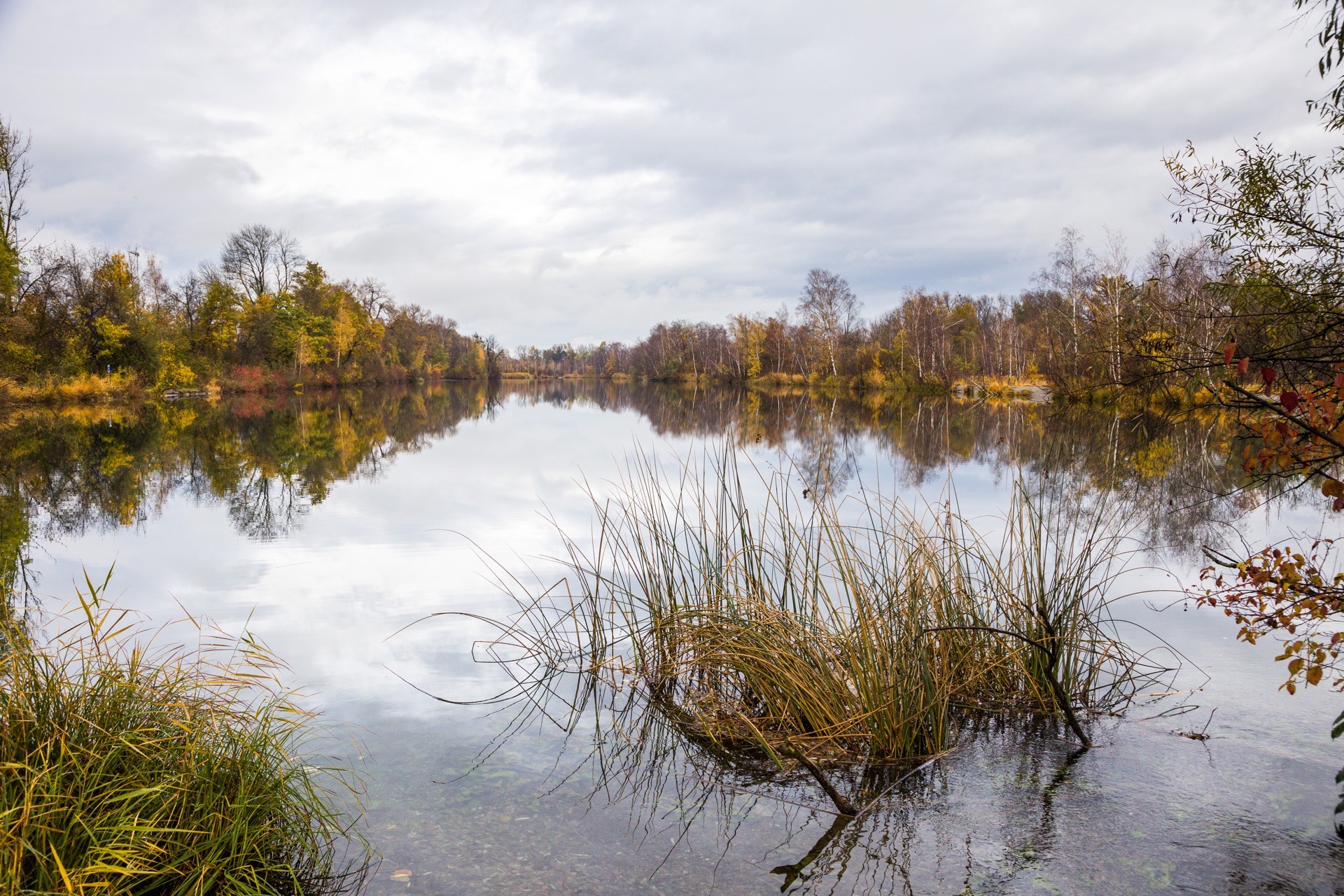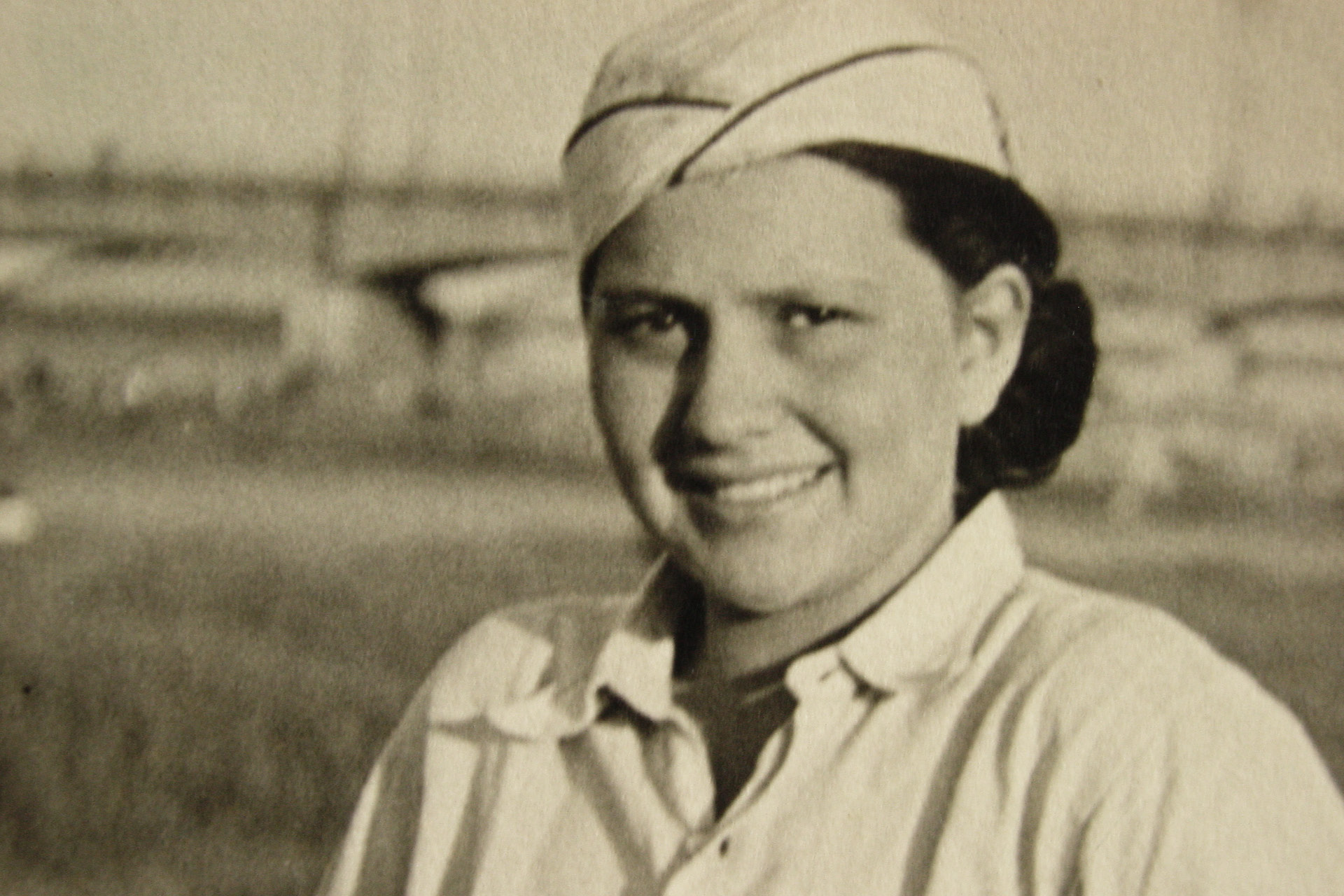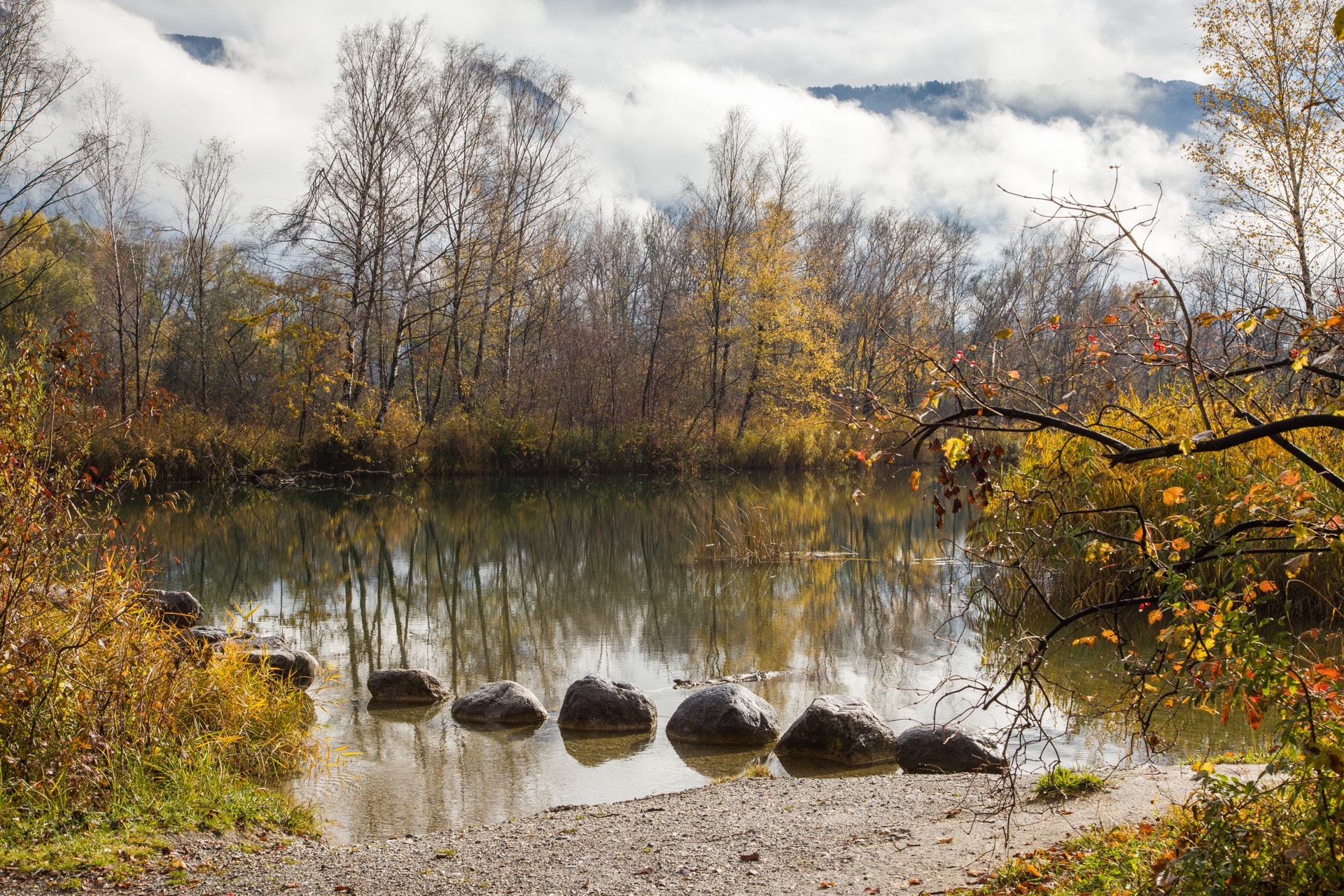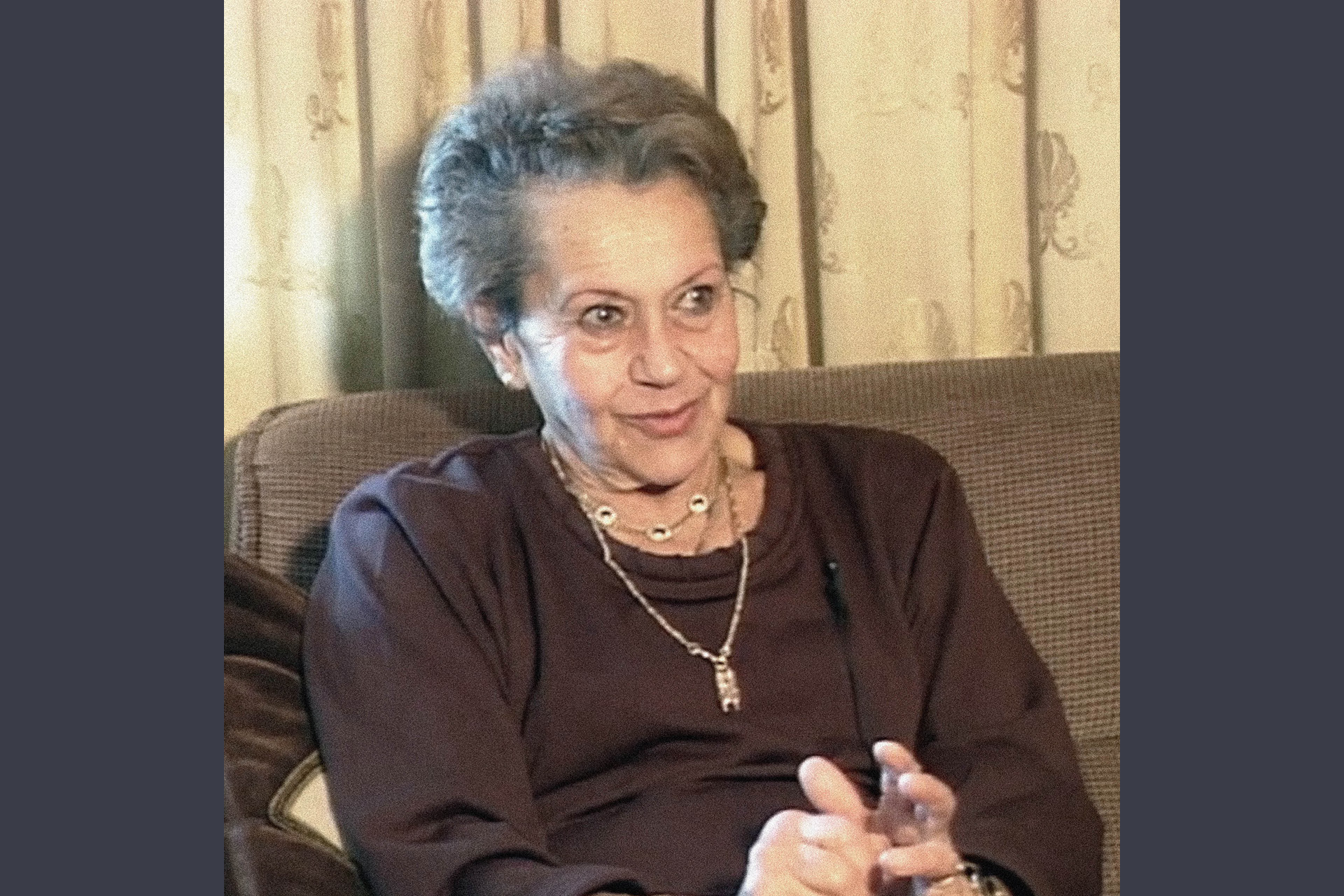Susi Mehl> October 28, 1938
20 Susi Mehl
“My luck had a name. Paul Grüninger” The Altach escape helper Edmund Fleisch brings Susi Mehl across the border
Hohenems, October 28, 1938
On October 28, 1938, sixteen-year-old Sophie Haber, then Susi Mehl, came to Hohenems to flee to Switzerland. Her family had moved from Krakow to Vienna in 1930 and ran a butcher's shop there. Sophie Haber's escape, together with a married couple and their children, was organized by her brothers. They fled to Switzerland immediately after the Anschluss in March 1938. Edmund Fleisch, an escape helper from Altach, takes them from Hohenems to the border. The group manages to cross the Old Rhine to Diepoldsau. In St. Gall Paul Grüninger ensures that she can stay and that the Israelite Refugee Welfare Service takes care of her. In 1941, she marries the Viennese emigrant Karl Haber, with whom she returns to Vienna in 1945. Sophie Haber became involved in the Communist Party - and also for the rehabilitation of Paul Grüninger, which she was able to witness in 1995.
In 1997 Sophie Haber tells the Shoah Foundation about her escape in an interview.
“It was fortunate that I only had this small bag with me, because it was a married couple, as I said, with two children, one was three years old and the other was five years old, six years old, and the parents, and as we did so, we walked for almost an hour through fields, it was October, wet, we almost sank into the wet earth, tilled earth, fields, wet, damp, where we sank into it. I carried the child, the smaller one, the mother led the older daughter by the hand, and the man carried the suitcases, they had luggage with them, and I carried the child, and thank God I was able to hold the bag underneath with the five shillings, that was my fortune, and so we got to the border, and there at the border he said, so now you go straight on, straight on, and on the other side is Diepoldsau and they're waiting for you there. And I can remember darkly, we went straight ahead, that was the meadows, the meadows of the old Rhine, there was little water and these old, the meadows were protected, or there was such a big dam, we had to climb over it on all fours and went down on the other side and that was already Switzerland and there we went straight ahead and we actually came to Diepoldsau.
(...) I was lucky and my luck has a name, and the name is Paul Grüninger, he saved my life. Then I went to him, I told him my fate, so I came from Vienna, a situation that had already become problematic for me, I have my three brothers here and whether I can stay there. I see him in front of me, I see the room, his office in front of me, there's the desk, we're at the door, we came in at [the] door, and he's standing in front of me on the left, with his pince-nez, he still had pince-nez back then, and his hands folded backwards, he looks at me and says: ‘Go to the refugee aid. I'll take care of that.’ That was it, and that's how I stayed in Switzerland.”[1]
Susi Mehl's parents also arrive in Hohenems in November and try to cross the Old Rhine with smugglers. But twice they are turned away at the border by Swiss police. Grüninger can't help either. He is already under increasing pressure.
Susi Mehl's parents' lives end in Auschwitz.
Links:
More about the story of Susi Mehl/Sophie Haber can be found on the website of erinnern.at:
https://www.erinnern.at/app-fliehen/zeitzeugen/sophie-haber
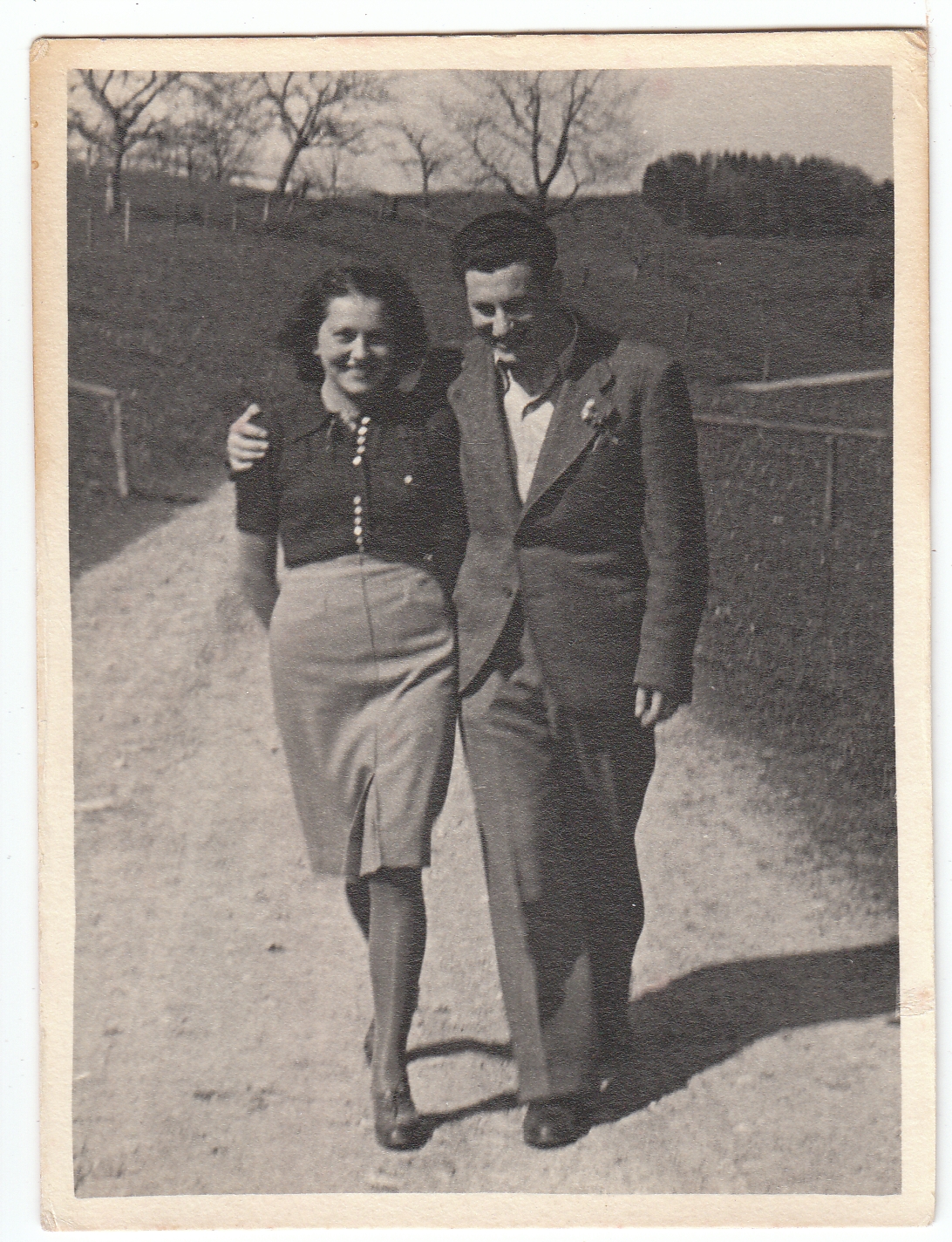
Sophie Haber with her husband Karl Haber1942 in Degersheim near St. Gall
© Private Collection Sophie Haber, Paul Haber
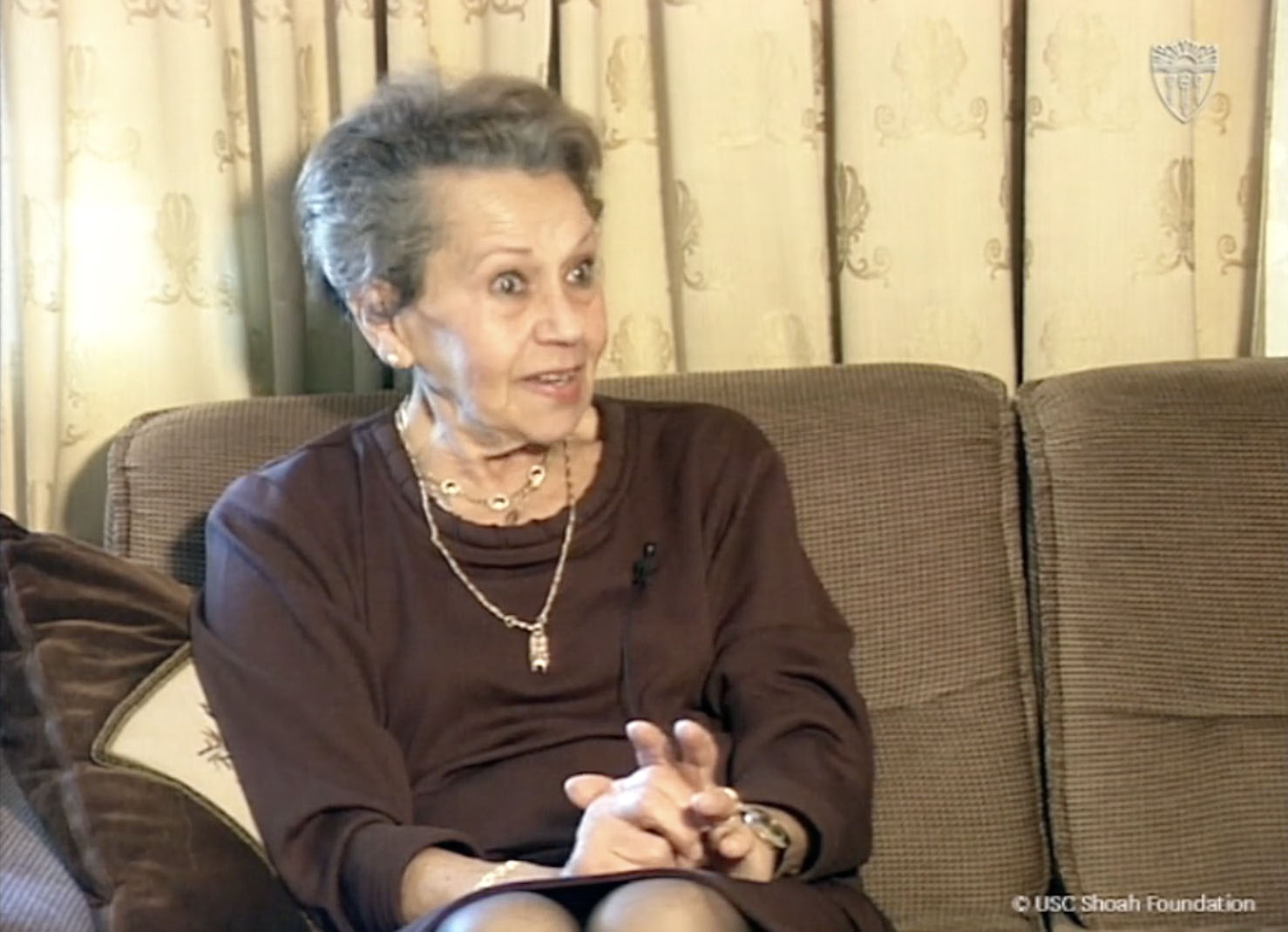
Interview with Sophie Haber 1997 (born 1922 in Kraków as Susi Mehl)
USC Shoah Foundation for Visual Histpry and Education, Los Angeles
https://vimeo.com/267235380
20 Susi Mehl
“My luck had a name. Paul Grüninger” The Altach escape helper Edmund Fleisch brings Susi Mehl across the border
Hohenems, October 28, 1938
On October 28, 1938, sixteen-year-old Sophie Haber, then Susi Mehl, came to Hohenems to flee to Switzerland. Her family had moved from Krakow to Vienna in 1930 and ran a butcher's shop there. Sophie Haber's escape, together with a married couple and their children, was organized by her brothers. They fled to Switzerland immediately after the Anschluss in March 1938. Edmund Fleisch, an escape helper from Altach, takes them from Hohenems to the border. The group manages to cross the Old Rhine to Diepoldsau. In St. Gall Paul Grüninger ensures that she can stay and that the Israelite Refugee Welfare Service takes care of her. In 1941, she marries the Viennese emigrant Karl Haber, with whom she returns to Vienna in 1945. Sophie Haber became involved in the Communist Party - and also for the rehabilitation of Paul Grüninger, which she was able to witness in 1995.
In 1997 Sophie Haber tells the Shoah Foundation about her escape in an interview.
“It was fortunate that I only had this small bag with me, because it was a married couple, as I said, with two children, one was three years old and the other was five years old, six years old, and the parents, and as we did so, we walked for almost an hour through fields, it was October, wet, we almost sank into the wet earth, tilled earth, fields, wet, damp, where we sank into it. I carried the child, the smaller one, the mother led the older daughter by the hand, and the man carried the suitcases, they had luggage with them, and I carried the child, and thank God I was able to hold the bag underneath with the five shillings, that was my fortune, and so we got to the border, and there at the border he said, so now you go straight on, straight on, and on the other side is Diepoldsau and they're waiting for you there. And I can remember darkly, we went straight ahead, that was the meadows, the meadows of the old Rhine, there was little water and these old, the meadows were protected, or there was such a big dam, we had to climb over it on all fours and went down on the other side and that was already Switzerland and there we went straight ahead and we actually came to Diepoldsau.
(...) I was lucky and my luck has a name, and the name is Paul Grüninger, he saved my life. Then I went to him, I told him my fate, so I came from Vienna, a situation that had already become problematic for me, I have my three brothers here and whether I can stay there. I see him in front of me, I see the room, his office in front of me, there's the desk, we're at the door, we came in at [the] door, and he's standing in front of me on the left, with his pince-nez, he still had pince-nez back then, and his hands folded backwards, he looks at me and says: ‘Go to the refugee aid. I'll take care of that.’ That was it, and that's how I stayed in Switzerland.”[1]
Susi Mehl's parents also arrive in Hohenems in November and try to cross the Old Rhine with smugglers. But twice they are turned away at the border by Swiss police. Grüninger can't help either. He is already under increasing pressure.
Susi Mehl's parents' lives end in Auschwitz.
Links:
More about the story of Susi Mehl/Sophie Haber can be found on the website of erinnern.at:
https://www.erinnern.at/app-fliehen/zeitzeugen/sophie-haber

Sophie Haber with her husband Karl Haber1942 in Degersheim near St. Gall
© Private Collection Sophie Haber, Paul Haber

Interview with Sophie Haber 1997 (born 1922 in Kraków as Susi Mehl)
USC Shoah Foundation for Visual Histpry and Education, Los Angeles
https://vimeo.com/267235380

